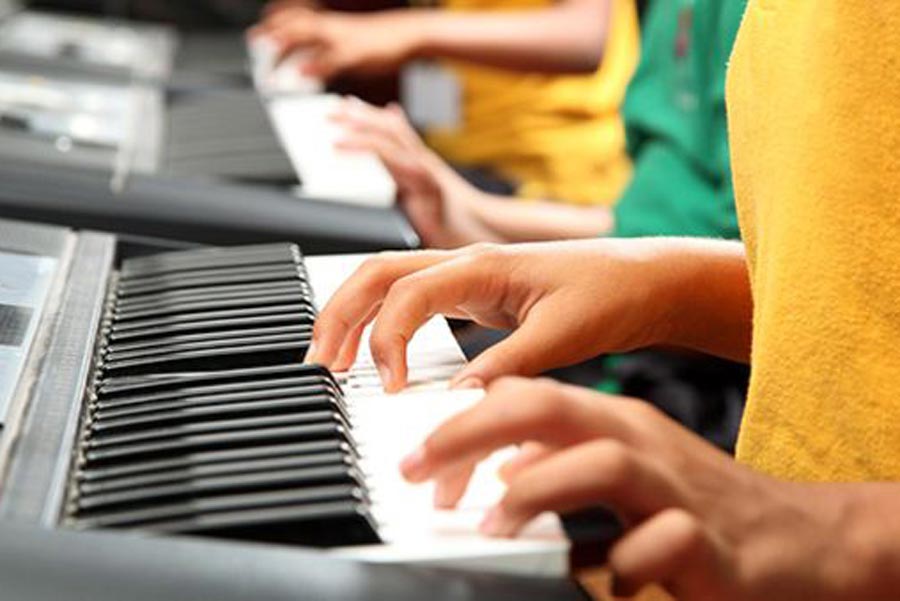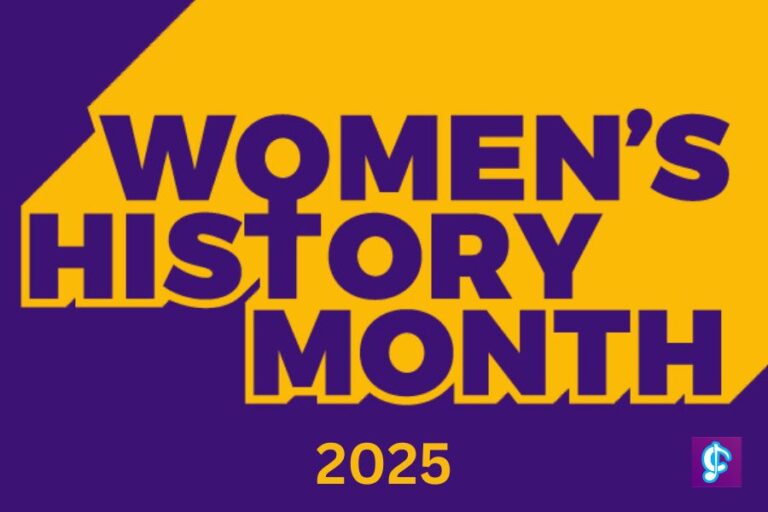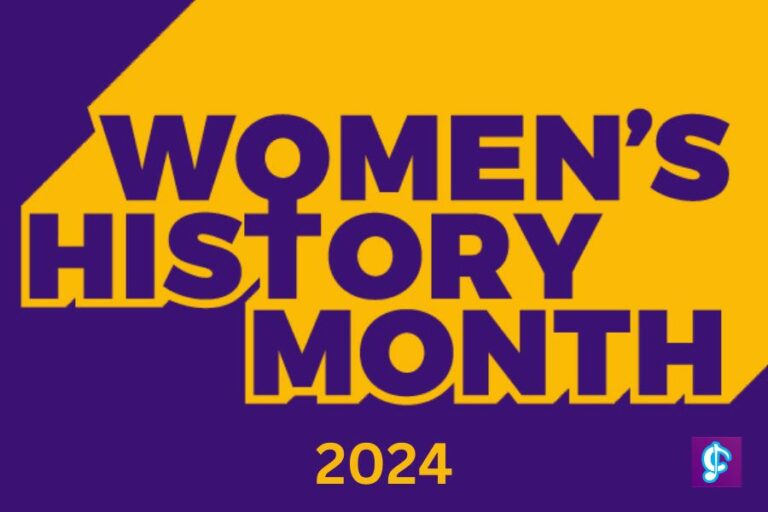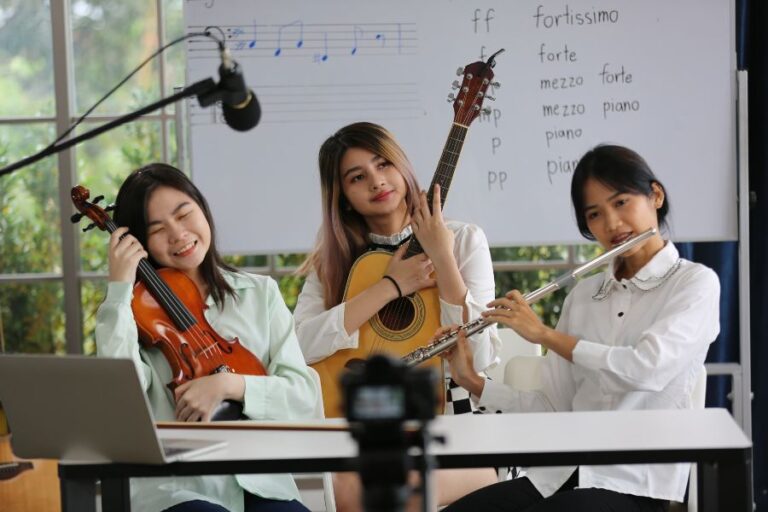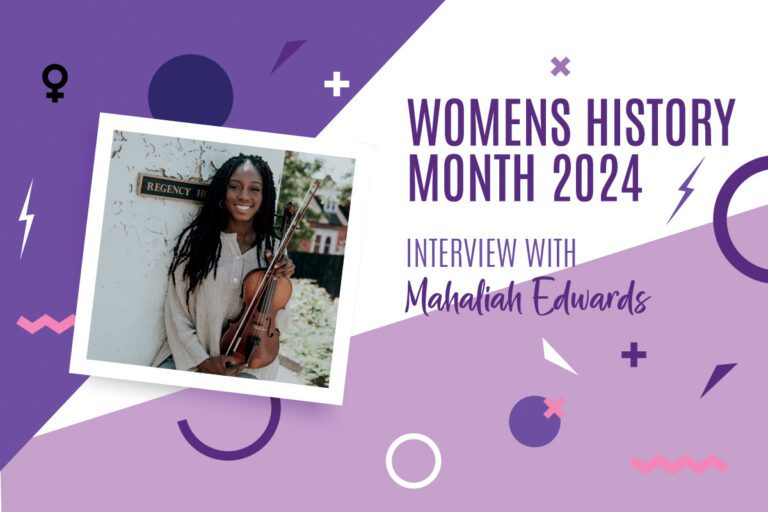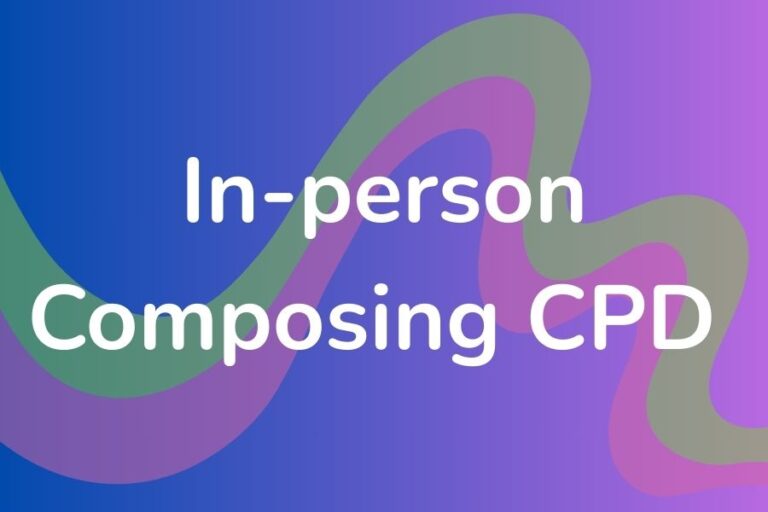Adding a Composing Club to your department’s extra-curricular timetable could be one of the most rewarding things you do for you and your students. In this article I look at the practical considerations of effectively setting one up and running it within a busy department.
Why have a Composing Club?
This might seem like an odd question, but I think it’s worth addressing at the start of this post. Your music department extra-curricular timetable might be full to bursting with rehearsals already. You might not feel too confident with teaching composition and so the idea of then adding an extra composition session to your week isn’t going to fill you with excitement! A composition club can raise the profile of composition as a musical activity. Most extra-curricular groups are geared towards performing music. Why not have one where the focus is creating music?
Having set up Composing Clubs in three different schools (with varying degrees of success, I might add), I can offer some insight into the benefits of including one in your lunchtime or after school activity list.
A Composing Club is inclusive, if you set it up as such. Unlike most school ensembles, where some degree of proficiency on an instrument is required, a Composing Club is open to all pupils who like being creative and trying out musical ideas – also known as the ‘musically curious’! It is something they can join without necessarily needing to perform.
I will always remember Laurie, a year 8 pupil who loved creating music at home on his computer. He was one of those pupils who you couldn’t get rid of at the end of the lesson (!) because he was playing his latest masterpiece to a crowd of adoring classmates. Laurie was a pianist and so couldn’t join any of the many ensembles on offer and wasn’t at the stage where he felt confident in accompanying instrumentalists. However, he was a keen composer and the most committed and loyal member of the group. Catering for such students is important so that their talent and interest can be nurtured.
Who can join?
You might want to make it open to anyone, or it may work better as a lower school club. If you’re pushed for time, the Composing Club could coincide with GCSE catch-up sessions – KS3 pupils can then see Year 10 and 11 students working on their compositions.
How structured should it be?
Getting the balance right regarding the structure of the club is really important. I know because it took a few goes to find a good balance. There needs to be a distinction between the classroom music lesson and the composition club, but also a need to show that the two are not separate entities. What is learnt in one can – and should – be brought into the other.
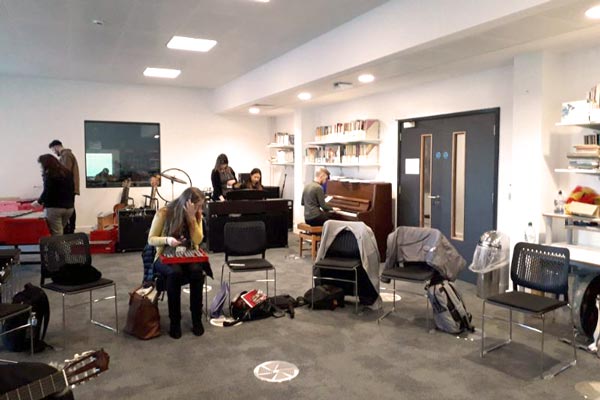
Sharing the structure of the sessions at the start of each term is a good way to establish some kind of routine. I found that 5-10 minutes all together at the start, listening to relevant pieces and discussing ideas, led to a more focused session. Devoting the final session(s) of each term for recording the pieces shows students that there is a plan and an end-point to the composition task.
Maintaining attendance and motivation
Like any extra-curricular activity, regular attendance is key and the way to get students to keep coming is to make it fun and to have a ‘core’ group of loyal students. Every school is, of course, different and will have different systems in place. It’s worth using the reward system, particularly when establishing a new group. Students could gain credits/merits for every session they attend, for example. I found that setting up a termly composition challenge was very effective in structuring the sessions, focussing and challenging students. At the end of each challenge, compositions would be recorded and shared in some way (see more details below).
Termly challenges
Half-termly or termly composition challenges are a great way to motivate students. I found that the frequency of the challenge varied as some half terms were quite short and others contained trips / exams / absences etc.
In order to make the club distinct from a classroom music lesson, I would set ‘real-world’ challenges, which pupils could relate to. Of course, there’s no reason why this couldn’t be done in lessons too, if conditions allow! Try to include people and situations that students will know about. It’s even better if there’s a situation which actually requires some music. When coming up with your list, you’ll need to bear in mind the students you have in the group. If you don’t know them at the start of the year, then start off with something with universal appeal.
Here’s a list of some of the challenges I’ve used:
- Compose some relaxing music for the nursing home next door to school to be played whilst residents are having their evening meal.
- Compose some upbeat music for the reception class to use for tidying up.
- Compose 90 seconds of music for the opening credits of the film, “Space Discovery”
- A TV media company need a 40 second jingle for a new trailer advertising a new bag of sweets / trainers / play-do set / fast car etc…
- Compose a fanfare for school prize-giving
- Compose a lullaby for a royal baby
- Create a club dance track
Flexibility
It’s important that there is flexibility – if a student wants to work on something else that should be allowed and encouraged. Unsurprisingly, the most successful challenges were the ‘real’ ones where students knew that their music might be played in a real situation. You’ll need to be imaginative in order to create some composition briefs – it’s unlikely that the nursing home will approach you or that the reception class teacher will ask you for some music, but if you go to them with the idea, they’ll probably be delighted!
Use Google Classroom
If your school uses Google Classroom, you could set up a specific Composing Club class and post materials for each challenge on there. It makes paired or group work easier and gives students somewhere to go if they are waiting for your help. It also means that you can prepare in advance and if you do draft in someone to help with the club, they can also access the resources.
Sharing composition work
Just as the wind band or school choir will work towards a concert or music festival, it’s important that the composers have something ‘public’ to work for as well. There should be no pressure for students to perform / have performed their work, however with a bit of encouragement most students are delighted to have their music played. If students know, at the start of the challenge, that their work might be performed at the next concert, it’s a big motivator to get the piece done.
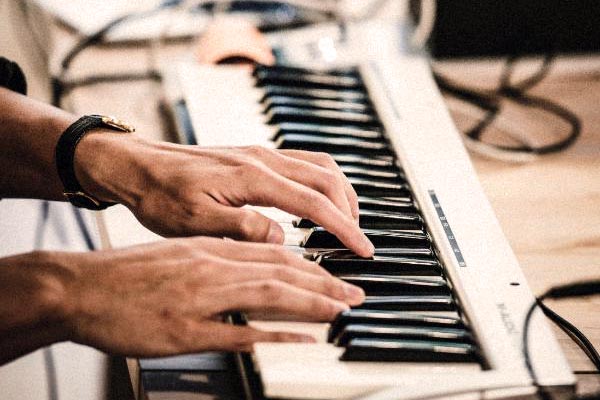
Sharing opportunities
- Assembly – as a stand-alone performance as part of the assembly or the recording being played as students walk in and out.
- School concert – including student compositions as items on the concert programme will increase the profile of composition and boost students’ confidence. Recorded pieces could also be played as the audience are entering the hall or during the interval.
- Music festival – if your school has a music festival, why not include a composition category where pupils can enter one of their own pieces.
- Set up a YouTube channel or Soundcloud account which can be linked to the school website. If your music department is on social media you can share these on Twitter and Facebook.
I like the idea but haven’t got time!
Music teachers will never have enough lunchtimes to do everything they want to do and this is particularly true if you’re in a solo/small department. If you can’t run the club yourself, here are some ideas for other people you could approach:
- Music Hub – it’s worth contacting your local music hub to see if there is someone who could help. If not, they might at least know of someone and provide a connection.
- Instrumental teachers – if there is budget available you could ask amongst your VMTs (Visiting Music Teachers) whether anyone would be interested in and willing to run the club. There might be some teachers who enjoy composing and would love the opportunity to do something a bit different.
- Sixth formers – you might be fortunate enough to have some A level music students who would like to run the Composing Club. You may need to be there for the first few sessions but once it’s established, it may just be a case of putting your head round the door to check that everyone is doing ok. If they are doing the Duke of Edinburgh Award, leading a group like this on a regular basis could count towards it.
- PGCE students / ECTs – if your department has PGCE students or ECTs, a Composing Club might be a good way for them to gain experience in running an extra-curricular group without the pressure of leading an ensemble (particularly if they are only there in the short-term).
- Other staff members – once you get to know other teachers at school, you’ll find that all sorts of talent emerges! The head of geography plays bass; the science technician sings tenor in the local church choir; the Spanish teacher’s hobby is songwriting…you might find that a teacher from another department is skilled in composing and would be happy to facilitate a group.
Go for it!
I hope you’ve found this post helpful and now feel inspired to set up a Composing Club – remember it takes time and perseverance to get it established, but it’s certainly one of the most rewarding things I ever did. Good luck!
